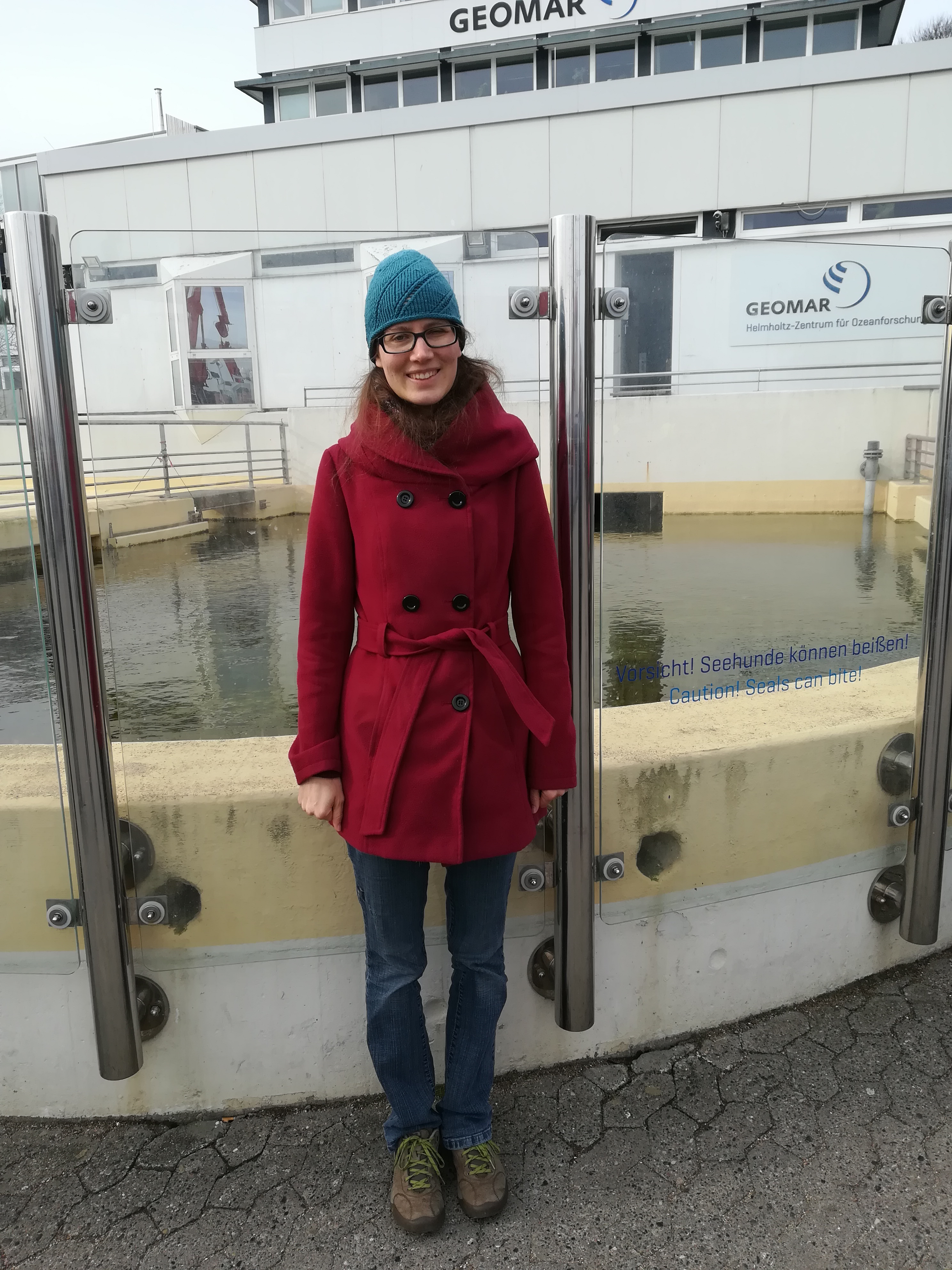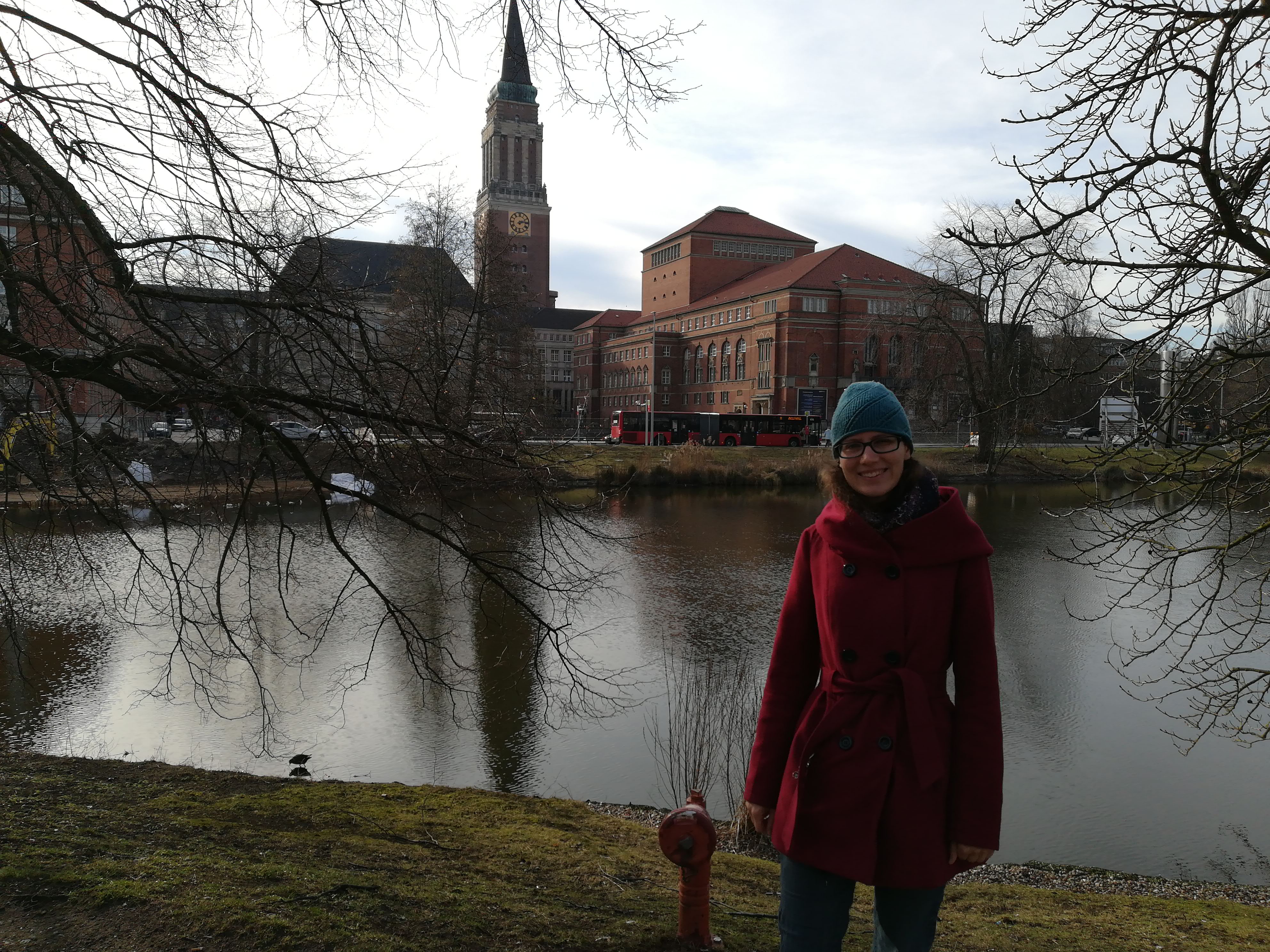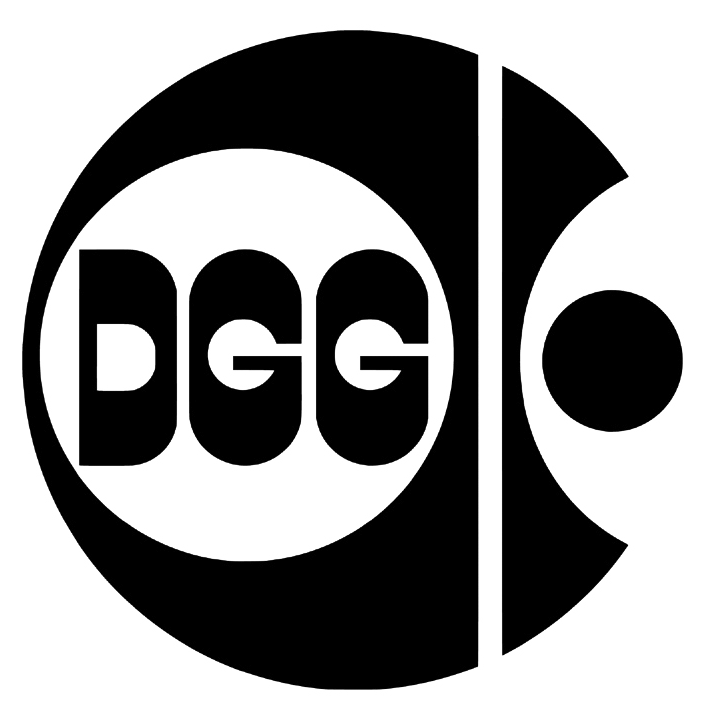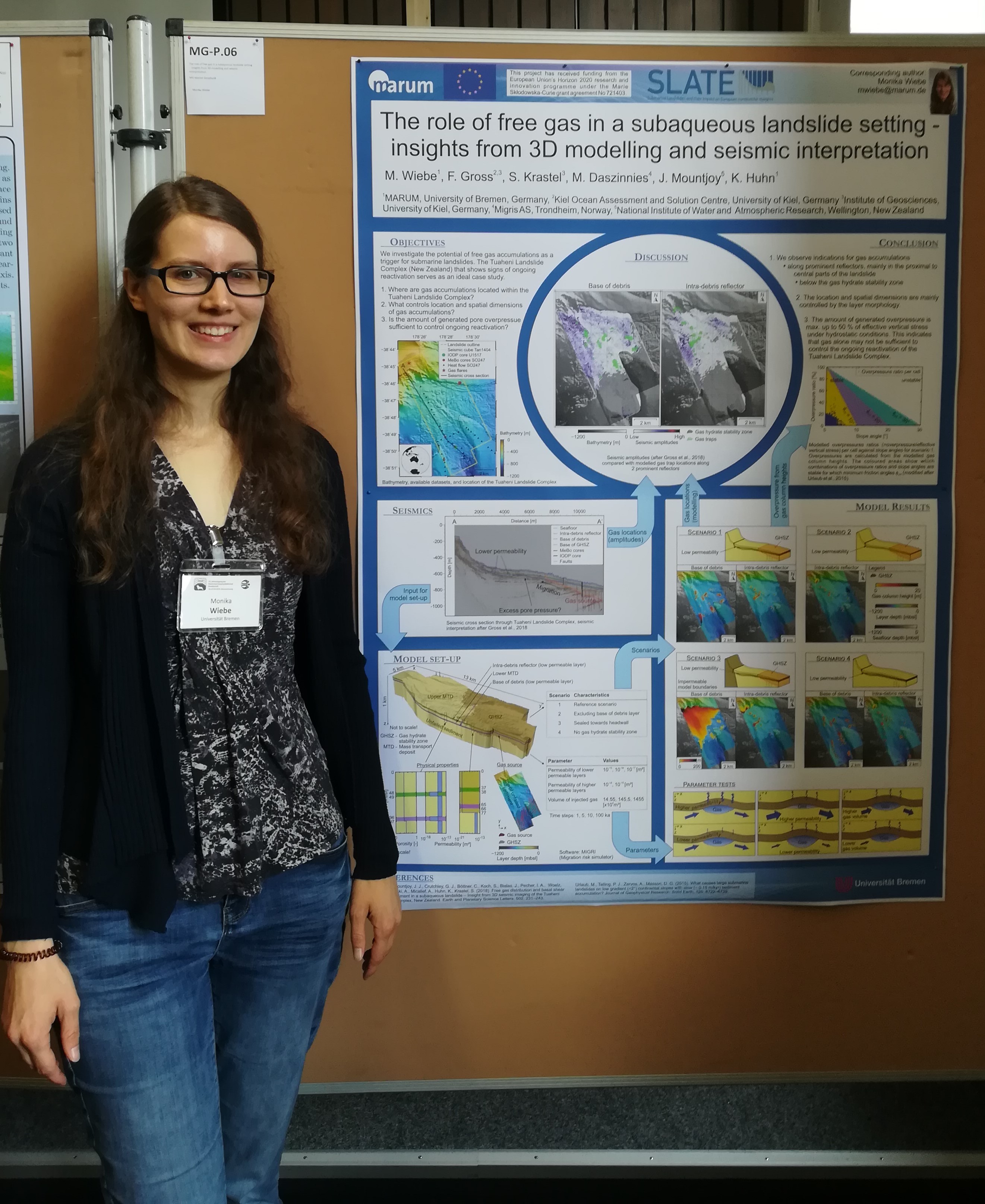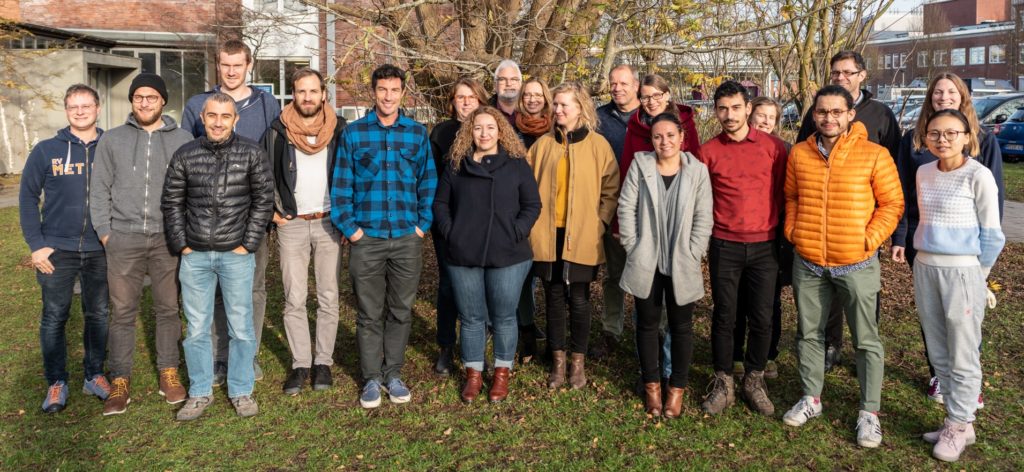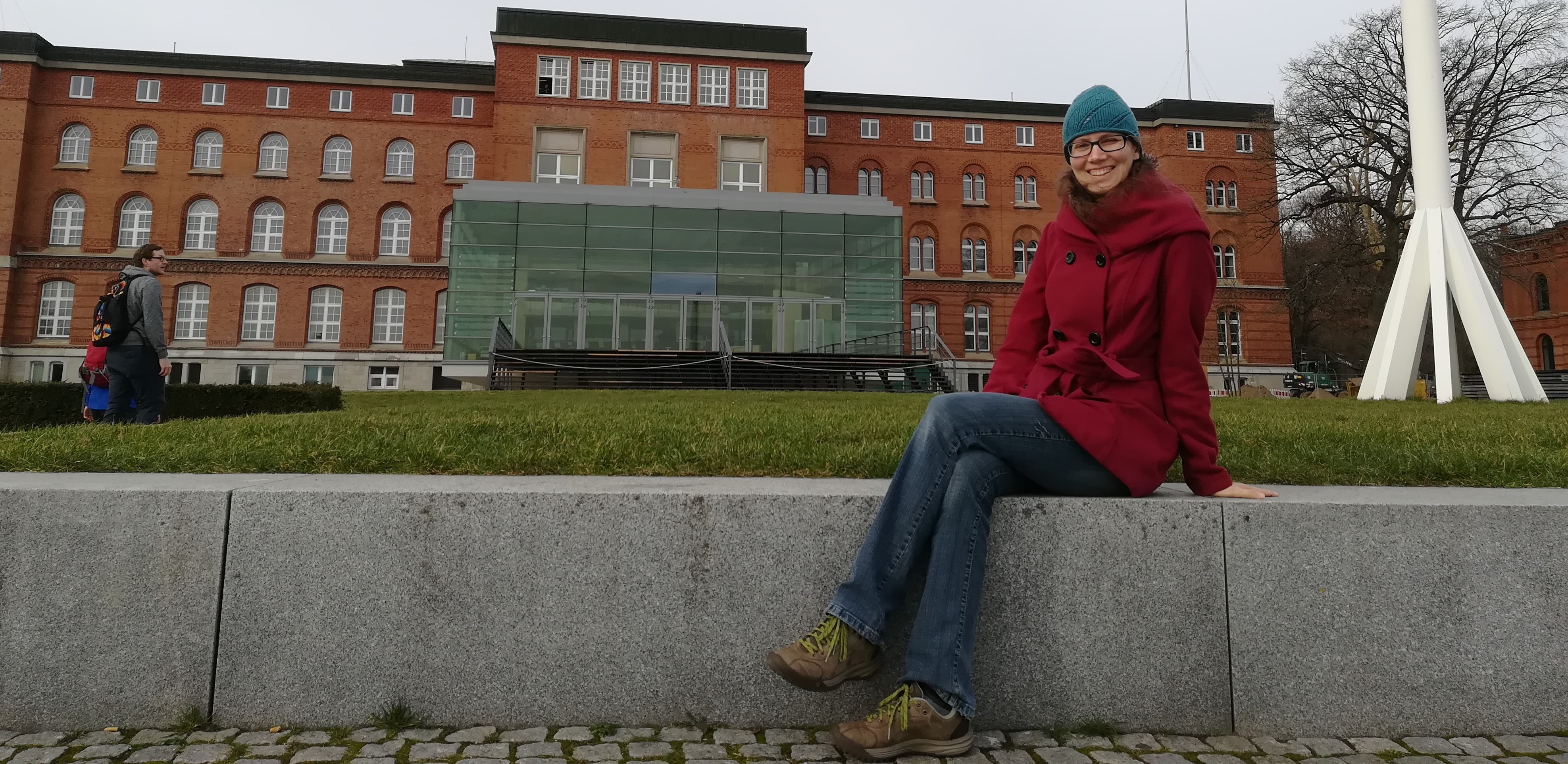
Kiel Visit N° 4
Monika Wiebe (ESR11) | @ CAU Kiel, Germany (4-27 February 2019)
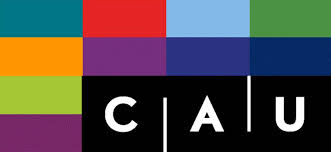
February 2019 brought me back to Kiel – this time for almost four weeks. After my previous three visits (see here, here, and here), I felt almost at home in this charming northern German city. The purpose of another visit was a mixture of the need to get input on seismic analysis, and the desire to get input on my current work progress.
During my stay, I was supervised by Dr. Felix Gross, who helped me with the seismic analysis, and with getting my thoughts organised on how to write a paper. The seismic analysis did not reveal any major results, but having done it myself helped me to better understand the types of data I am dealing with. During meetings with Dr. Gareth Crutchley (GNS Science) and Dr. Morelia Urlaub (GEOMAR) I also got valuable feedback and ideas on how to proceed, which resulted in a new model scenario that I conducted during my stay.
The longer stay also enabled me to see more of Kiel, such as the famous seals in front of the GEOMAR building along the Kieler Förde.
Kiel impressions

